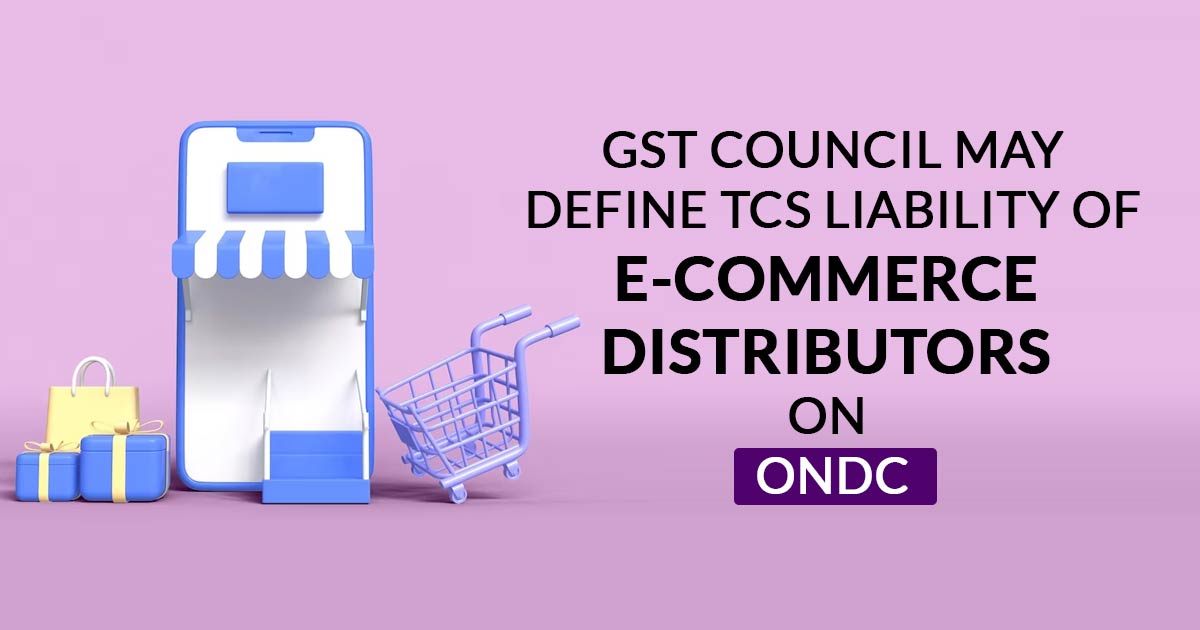
The 50th GST Council may provide clarification on July 11 regarding the TCS liability of suppliers engaged in e-commerce trading through Open Network Digital Commerce (ONDC) when multiple operators are involved in a transaction.
The Department for Promotion of Industry and Internal Trade (DPIIT) has introduced a new program called ONDC, Open Network for Digital Commerce. However, it is currently unclear who should be responsible for TCS compliance under the GST legislation.
Under the Goods and Services Tax (GST) law, every e-commerce operator is required to collect TCS at a rate of 1% on the taxable value of goods and services sold through its platform.
In some cases, multiple e-commerce operators may be involved in a single transaction through an ECO platform. The Law Committee, consisting of Center and State tax officers, has recommended that the supplier should handle TCS compliance and then make the payment to the supplier.
The inventory model and the marketplace model are the two ways through which ONDC operates.
In the inventory model, a customer places an order with an e-commerce platform and pays the supplier for the goods or services. In this case, the e-commerce platform deducts Tax Collected at Source (TCS) while making the payment to the seller.
In the marketplace model, where two intermediaries are involved in a transaction, it is uncertain who is liable for TCS deduction.
In this scenario, a buyer places an order on an e-commerce site (buyer app), and another e-commerce platform (seller app) sources the product. The seller app then gets the products from an authentic supplier.
Due to the involvement of multiple parties, the DPIIT has raised the question of who should be responsible for withholding Tax Collected at Source (TCS), the buyer or the seller e-commerce company.
According to sources, in this situation, the seller app would need to deduct TCS when paying the supplier. The GST Council is likely to provide clarification on this matter.
ONDC was established as a Section 8 company on December 31, 2021.
The DPIIT has developed a facilitative model to assist small retailers in utilising digital commerce. It consists of specifications aimed at promoting open, unbundled, and interoperable networks, rather than being an application, platform, intermediary, or software.
If the annual sales of an intra-state supplier are below the GST registration threshold (Rs. 40 lakhs for goods and Rs. 20 lakhs for services), the GST Council waived the requirement last year for suppliers to register with e-commerce platforms. This provision will be implemented starting from October 1.









